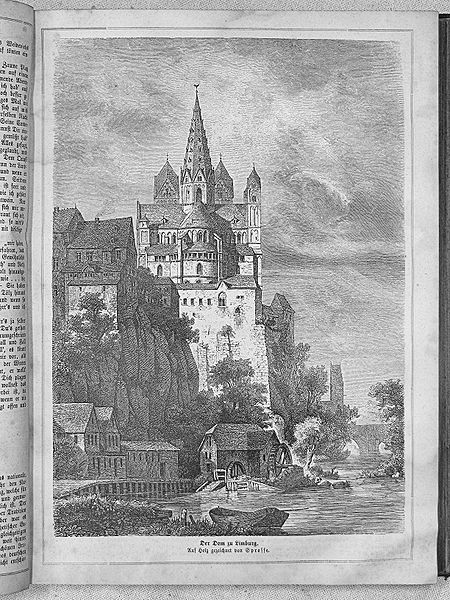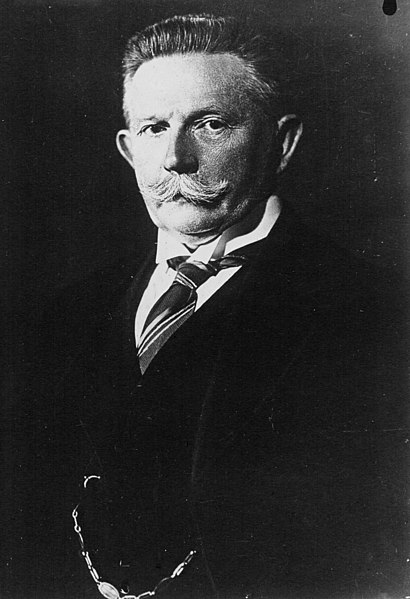Die Gartenlaube – Illustrirtes Familienblatt [sic] was the first successful mass-circulation German newspaper and a forerunner of all modern magazines. It was founded by publisher Ernst Keil and editor Ferdinand Stolle in Leipzig, Kingdom of Saxony in 1853. Their objective was to reach and enlighten the whole family, especially in the German middle classes, with a mixture of current events, essays on the natural sciences, biographical sketches, short stories, poetry, and full-page illustrations.
Ernst Keil, founder of the magazine
Volume 1 No. 1, 1853
Der Untergang der "Titanic‟, 2-page layout by Willy Stöwer, 1912
Cathedral of Limburg: a typical full-page drawing, copied from earlier artwork, in 1863.
Alfred Ernst Christian Alexander Hugenberg was an influential German businessman and politician. An important figure in nationalist politics in Germany during the first three decades of the twentieth century, Hugenberg became the country's leading media proprietor during the 1920s. As leader of the German National People's Party, he played a part in helping Adolf Hitler become chancellor of Germany and served in his first cabinet in 1933, hoping to control Hitler and use him as his tool. The plan failed, and by the end of 1933 Hugenberg had been pushed to the sidelines. Although he continued to serve as a guest member of the Reichstag until 1945, he wielded no political influence. Following World War II, he was interned by the British in 1946 and classified as "exonerated" in 1951 after undergoing denazification.
Hugenberg in 1933
Gustav Krupp von Bohlen und Halbach in 1915
Chancellor Theobald von Bethmann Hollweg in 1913
Heinrich Class, whose plans for a putsch included Hugenberg








